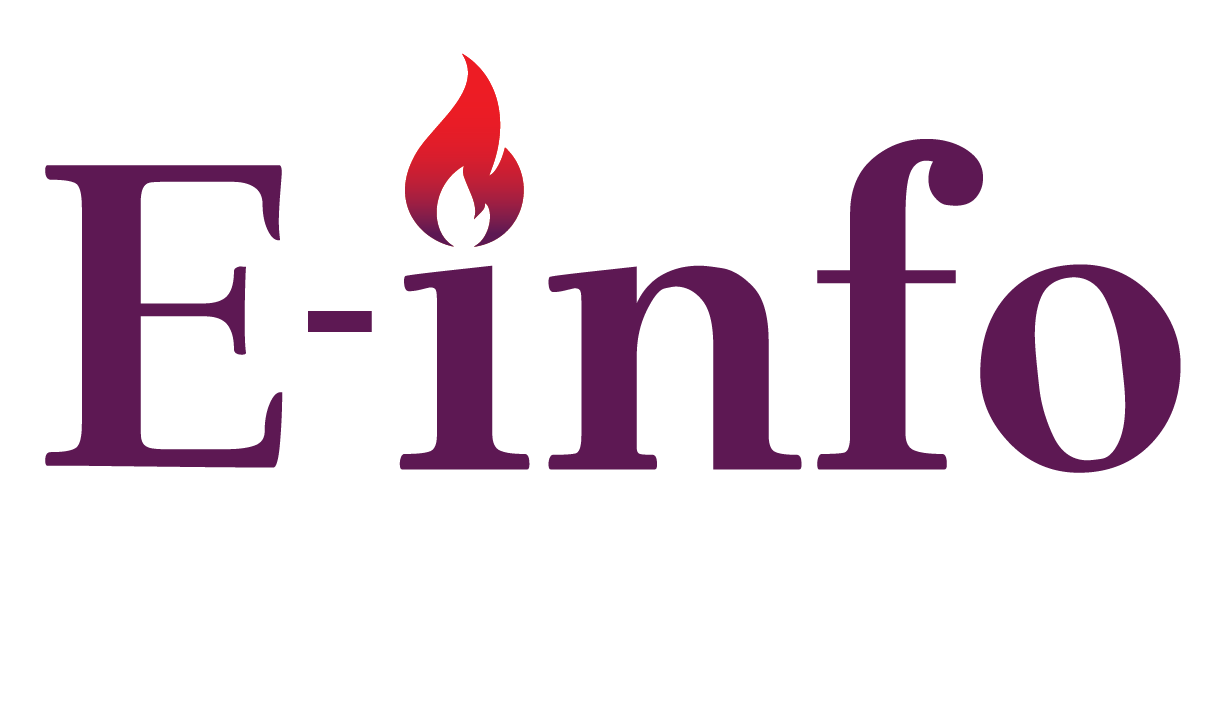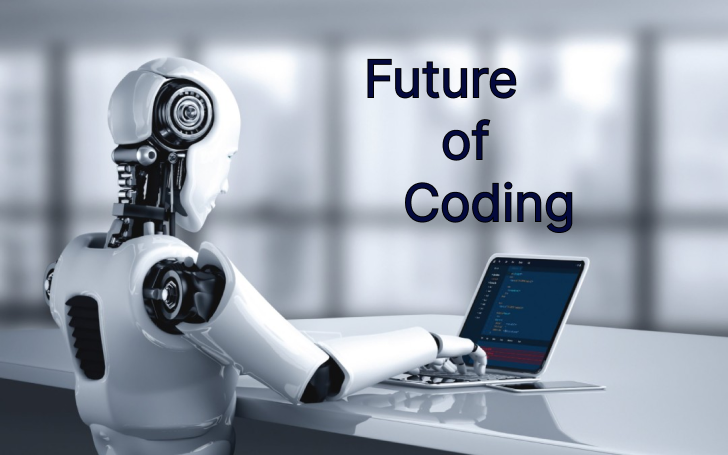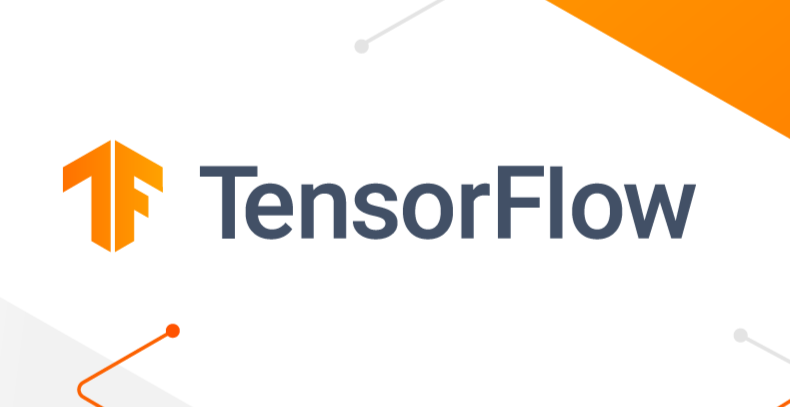The rapid advancement of artificial intelligence (AI) has sparked debates across various industries. With the rise of Devin AI hailed as the first AI software engineer and NVIDIA’s CEO’s statement about the death of coding by human programmers, one burning question has dominated the tech and programmer’s world: Will AI replace programmers?
As AI systems become increasingly sophisticated, concerns arise about the future of software development roles. However, the reality is more nuanced than a simple yes or no answer. So, let’s dive deep into this.
The Rise Of AI In Programming
AI and Machine Learning have been used and researched for a long time. The “first artificial intelligence program” named “Logic Theorist”, which proved theorems in geometry and learned to speak English was created in 1955.

Likewise, in the 2010s, the resurgence of neural networks, particularly deep learning, revolutionized AI’s capabilities. It enabled significant advancements in areas like computer vision, natural language processing, and code generation.
The launch of Open AI‘s ChatGPT and its variant showed the potential of generating codes with simple prompts. It is now integrated into various apps and software via its API. To learn how to make intelligent Assistants with ChatGPT and Flutter, click here.
How AI Affected Programming Jobs?
Although coding is not completely dead as NVIDIA’s CEO said, AI surely has affected lots of programming jobs. Many of the Tech giants such as Google, and Facebook, had mass lay-offs. Many coders have been replaced by AI.
Which programmers are safe from AI? Well, most of the senior programmers who have life experience and an understanding of business contexts are likely in the safe zone for now. However, the toll of AI can be largely seen on the Junior Developers through increased automation of repetitive coding tasks.
Current Potential And Advancement of AI In Coding
Generative AI’s like ChatGPT have been standing strong in the field of coding. Based on the GPT model, Github Copilot has remarkably helped developers to auto-complete their code, provide boilerplate as well as solve problems.
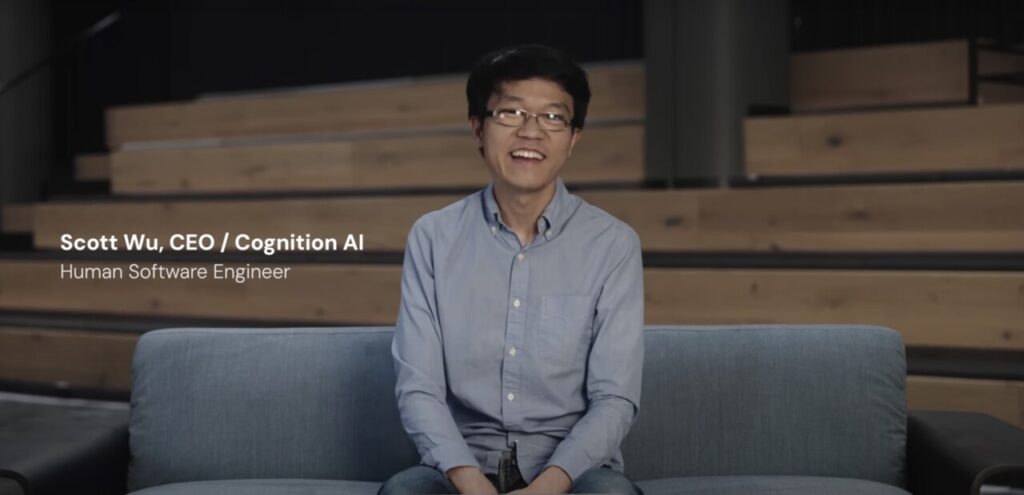
Similarly, Google’s Gemini has also proven useful for developers to build and deploy the software. Just like, Github Copilot, Gemini has its own Gemini Code Assist, which assists coders in their IDE and can be used in VS code too.
While above mentioned AI model only assists developers, the viral “Devin AI”, hailed as the first AI software engineer threatened the programming job with its ability to code, search for solutions on the internet, and fix errors. However, some sources are claiming that the creators of Devin, Cognition Labs, have lied about its ability and claimed the demo video of the Devin AI to be fake.
Cognition Labs has yet to speak about it. Despite programmers feeling somehow relieved after hearing Devin AI being fake, this relief might not be for a long time. Recently, Microsoft AutoDev, an AI-driven framework has been introduced. It is designed to autonomously plan and execute complex software engineering tasks.
Will AI Replace Programmers In 10 Years?
Well, Nvidia CEO Jensen Huang has proposed a groundbreaking idea for the future of AI: using English as the universal coding language. Likewise, the race of the tech giants to create the best autonomous AI model will surely impact programming jobs.
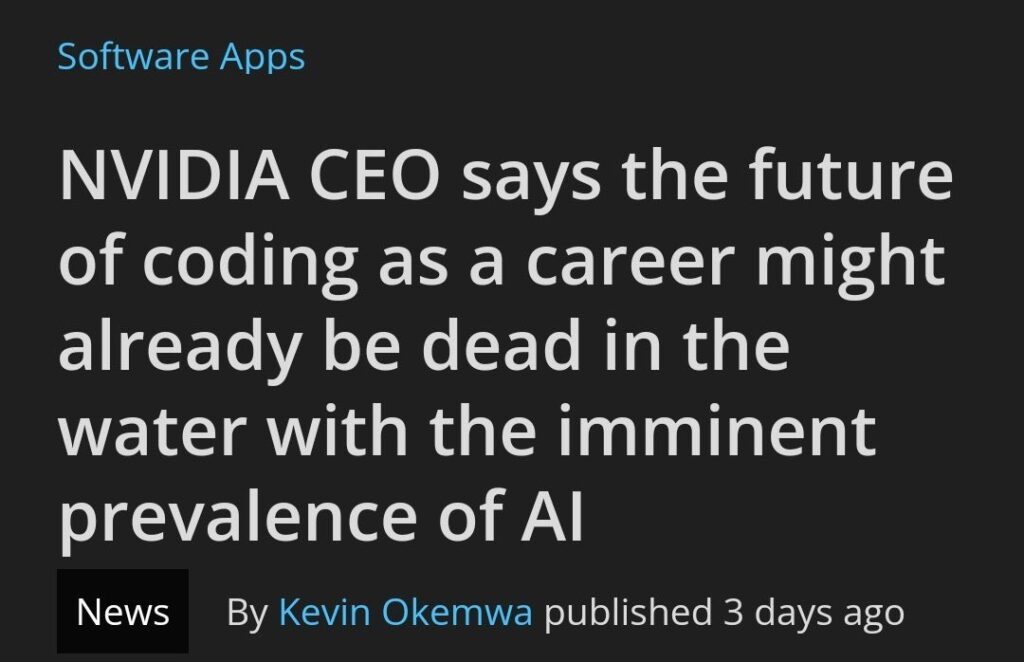
While AI will undoubtedly automate and streamline many programming tasks, it is more likely to redefine the role of programmers rather than eliminate them altogether. Programmers will need to adapt and develop new skills, such as understanding and working with AI systems, and ML platforms, managing AI-assisted workflows, and focusing on higher-level problem-solving and strategic decision-making.
Ultimately, the future of programming will involve a symbiotic relationship between human programmers and AI, where each complements the other’s strengths and limitations, leading to more efficient, innovative, and robust software development processes.
While disruptive, AI’s ascent doesn’t necessarily mean human programmers face obsolescence. Instead, their roles will likely evolve into higher-level domains:
- Defining product requirements and AI prompts
- Overseeing and monitoring AI-driven coding pipelines
- Handling edge cases that confuse AI systems
- Strategic planning and software architecture
Get More AI Update With EnlightInfo.
